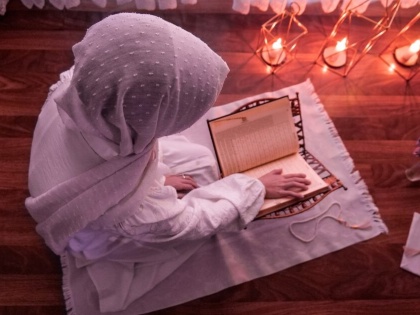Ramadan 2024: Date in India, Significance and Importance of Fasting During Holy Month of Ramzan
By Lokmat English Desk | Published: March 5, 2024 11:33 AM2024-03-05T11:33:43+5:302024-03-05T11:36:06+5:30
The highly significant month of the Islamic calendar, Ramadan, is on the horizon, and Muslims worldwide are gearing up ...

Ramadan 2024: Date in India, Significance and Importance of Fasting During Holy Month of Ramzan
The highly significant month of the Islamic calendar, Ramadan, is on the horizon, and Muslims worldwide are gearing up with enthusiasm and zeal for its arrival. Ramadan, also known as Ramzan, is the ninth month of the Hijri Calendar or Islamic Calendar. This month-long festival is observed by Muslims globally through fasting, offering prayers, engaging in humanitarian activities, and donning new clothes. In India, The holy month of Ramadan 2024 is likely to begin on March 11 or March 12, this depends on the sighting of the crescent moon and will last for four weeks and ends with Eid-ul-Fitr.
Every nation observes its holy month on a different day. Muslim communities all over the world observe Ramadan. Following Islamic tradition, the crescent moon of Ramadan is initially sighted in Saudi Arabia and certain regions of India, while other countries, including India, Pakistan, and Bangladesh, typically observe it a day later. During Ramadan, Muslims eagerly await the opportunity to express their gratitude through observing Roza, which involves abstaining from food and water from sunrise to sunset.
This act of self-control strengthens them physically, mentally, and spiritually. Throughout the month, they diligently adhere to the rules and regulations, refraining from addictions such as smoking, excessive eating, and indulging in prayer throughout the day. The pre-dawn meal before fasting begins is called Suhoor, and the meal to break the fast at sunset is called Ramadan Iftar.
Importance of Fasting
Throughout Ramadan, Muslims engage in prayer and observe Roza, symbolizing their devotion to Allah.
During this month, followers globally abstain from worldly pleasures, dedicating their time to prayer, reciting the Holy Quran, and spending moments with family.
The day commences with individuals waking up for Sehri, a pre-dawn meal. From sunrise until sunset, they abstain from eating or drinking anything.
At sunset, they break their fast with Iftar, often featuring a spread of delicious foods.
Fasting is one of the five pillars of Islam, and it is considered an act of worship, self-discipline, and an opportunity to focus on spirituality, charity, and good deeds.
The benefits of observing fast are multifaceted and include physical, mental, spiritual, and social benefits.
One of the first health benefits of fasting in Ramadan is that it helps with weight loss and improved metabolism.
Fasting can help control blood sugar levels by reducing insulin resistance and improving insulin sensitivity. When a person fasts, the body is forced to use stored glucose for energy, which helps reduce blood sugar levels.
Fasting can also help reduce inflammation in the body, which is a contributing factor to insulin resistance.
One of the important benefits of fasting in Ramadan is that it boosts the immune system. During a fast, the body shifts from using glucose as its primary source of energy to using ketones, which are produced from fat stores.
Fasting has been shown to reduce blood pressure by decreasing the amount of sodium in the body and reducing inflammation, which can lead to hypertension.
Fasting during Ramadan can help the body detoxify by allowing the liver to better process and eliminate toxins that have built up in the body. When a person fasts, the body switches to using stored fat for energy, which allows for the release of toxins stored in the fat.